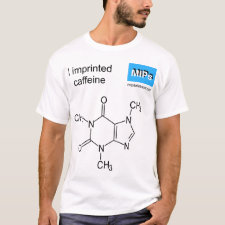
Authors: Lee SC, Lin HM, Chen H
Article Title: Studies on the preparation and properties of inorganic molecularly imprinted polymer (MIP) based on tetraethoxysilane and silane coupling agents.
Publication date: 2009
Journal: Journal of Applied Polymer Science
Volume: 114
Issue: (6)
Page numbers: 3994-3999.
DOI: 10.1002/app.30974
Abstract: Inorganic molecularly imprinted polymer (MIP) based on tetraethoxysilane (TEOS), methyl triethoxysilane (MTEOS), and phenyl triethoxysilane (PTEOS) by sol-gel process has been developed. The MIP's preparation conditions, H2O/Si molar ratios (R), template removal procedures, calcination temperatures, and quantity of ammonium hydroxide were investigated. The competition experiments of the MIP for template (caffeine, CAF) and analogue (theophylline, TH) were analyzed by high-performance liquid chromatography (HPLC). The results showed that the AdCAF decreased with an increase of the H2O/Si molar ratios, but the selectivity (alpha) increased with an increase of the H2O/Si molar ratios in the MIP. In addition, in a comparison of the procedures for removing the template, calcination obtained better efficiency and higher selectivity than extraction. The optimum adsorption and selectivity of MIP were obtained with R = 10 and the template was removed by calcination at 600°C. Moreover, the selectivity of the MIP (283.9) was greater than the nonimprinted polymer (2.45) under optimum preparation conditions. © 2009 Wiley Periodicals, Inc. J Appl Polym Sci, 2009
Template and target information: caffeine, CAF
Author keywords: molecular imprinting, molecular recognition, high performance liquid chromatography, adsorption, selectivity



Join the Society for Molecular Imprinting

New items RSS feed
Sign-up for e-mail updates:
Choose between receiving an occasional newsletter or more frequent e-mail alerts.
Click here to go to the sign-up page.
Is your name elemental or peptidic? Enter your name and find out by clicking either of the buttons below!
Other products you may like:
 MIPdatabase
MIPdatabase









